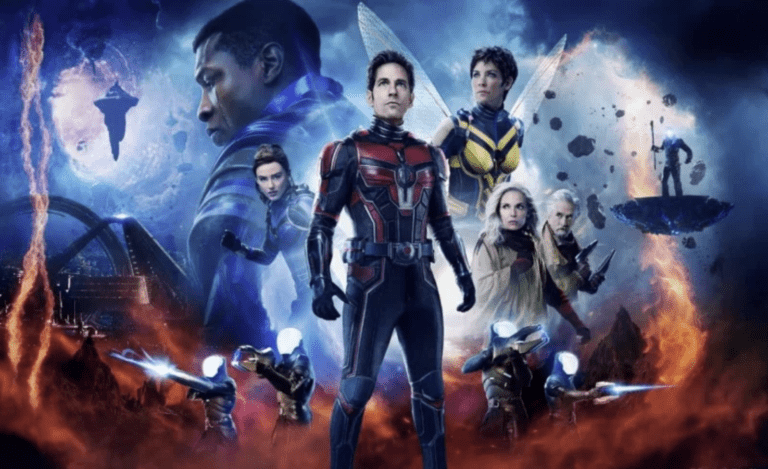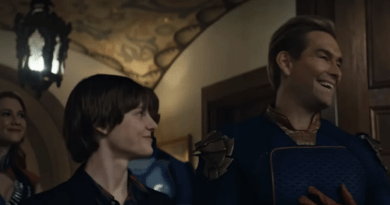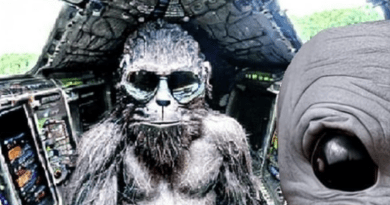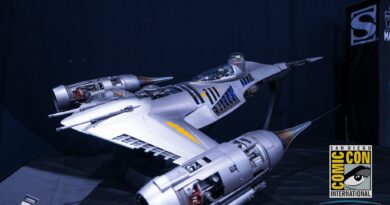Ant-Man and the Wasp: Quantumania review
It’s possible to sum up Ant-Man and the Wasp: Quantumania in three words. Psychedelic Star Wars. All the elements are there, a reluctant protagonist, an evil Emperor and an Empire that needs vanquishing, a revolution, and even a dash of politics for good measure. But Quantumania can’t put all the parts together in quite the same way, leaving a film that has some great moments and characters, but falls flat in a couple critical ways.
Starting with the biggest plus, Jonathan Majors brings a threatening intensity to Kang that through alone propels the character to the most intriguing bit in the film. He steals every scene he’s in, though sometimes the script lets him down by not giving him enough to do. He has the most exposition to do in the film, and doesn’t get involved until too late.
Where the film takes the character is likely to prove divisive, with a huge implication going forward. It’s a bold choice, but one that ultimately harms Kang’s potential to terrorise the MCU multiverse in the future. Jonathan Majors is what makes this villain scary so far, so hopefully the writing will catch up. Another part of the writing that doesn’t quite work is that the film hinted in the trailer is a completely different one to what was shown, and honestly that’s a missed opportunity.
This leads onto the Empire and revolution aspects of the film, which don’t quite work. Kang has conquered the Quantum Realm and turned it into his personal domain, and while his presence is felt across the realm, the rebels are all over the place. Their power levels feel very inconsistent, with the final battle in particular feeling very one sided.
There’s also a political bent to this film, which, unlike Star Wars, is extremely unsubtle, to a point where it takes the audience out of the film. It starts off with the community focused with Hope and Cassie, the latter making more sense for an activist type of character, but Hank is where this gets too much.
His dialogue later in the film swerves into left-wing propaganda, praising socialism and its virtues. While it’s not uncommon for sci-fi films to have political subtext (and analysing that subtext can be fun), when it’s this obvious it makes for a weird choice, completely unnecessary and alienating to some fans.
Going back to some positives, are the leads in Michelle Pfeiffer’s Janet Van Dyne, Kathryn Newton’s Cassie Lang, and Paul Rudd’s Scott Lang. All three were a joy to watch, with Scott and Cassie’s relationship in the film being a core part of that. The theme of family and keeping secrets from one other was thoughtfully shown, and was well explored.
Another character that appears is Bill Murray’s Lord Krylar, but he’s nothing more than a glorified cameo, a waste of a brilliant actor. He did what he could with his role, but the suspense and the twist his role had amounted to very little.
M.O.D.O.K, another character in the film, has a huge reveal tied to him, with a familiar face. His helmeted version looks very cool, with all of the weapons and armor adorning his chair. His introduction is well done, with a neat piece of foreshadowing obscuring camera angles until the reveal. They also give him a welcome arc across the film, albeit slightly rushed stopping him from being a one-note villain.
The third act, while packed full of spectacle, feels like the film just stumbles into it. There’s very little build up, suddenly the audience finds the major battle sequence happening, which is a problem in pacing. The film constantly has things happen, so they all feel like they have equal weight, and there’s little down period for the audience to pause and have the stakes ramp up.
Visually this film is inconsistent. The Volume sometimes adds to the film, providing an excellent cinematic feel, a standout would be the middle set piece. But at points it feels like CGI soup, and fails to portray the relevant context needed to understand Ant-Man’s size powers because the audience don’t have a frame of reference. Having this film almost entirely set in the Quantum Realm was too much of an ask.
There are two post-film tags to the film, and the first one in particular is a major surprise, and fans will surely be on the edge of their seats for that one, eagerly waiting for the payoff. The second one too is a surprise, though not as momentous as the first.
Overall, this film feels like an inconsistent one, with some pacing and political issues and visual glitches, but still has redeeming aspects, mostly found in the performances. It has a feeling of setup overhanging most of the affair, but in a confusing way the film itself means little. It’s not the clean break from Phase 4 that Marvel wanted, but hopefully it’s the start of an upward trend.




